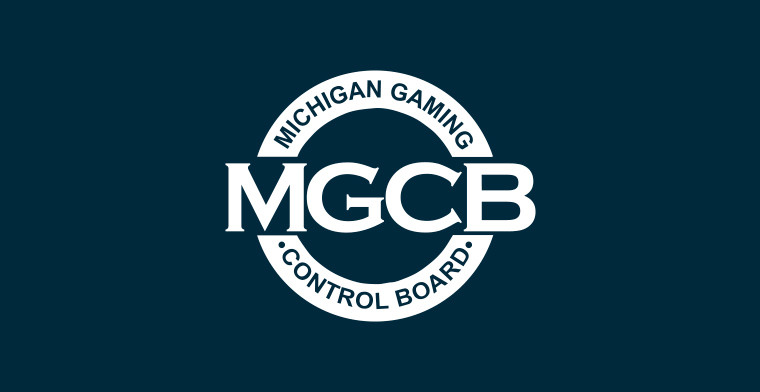Victoria Passes Landmark Carded Play Bill for Electronic Gaming Machines

Gambling involves financial risk and may not be suitable for all individuals. Gambling industry experts create our content for informational purposes only. We may receive commissions from affiliate links at no cost to you, but our reviews remain independent and unbiased. We're committed to responsible gambling practices and transparent recommendations. About Us

Melbourne, March 28, 2025 – Victoria has taken a bold step toward reducing gambling harm with the passage of the Gambling Legislation Amendment (Pre-commitment and Carded Play) Bill 2024 through the state’s Legislative Assembly. The landmark legislation, which passed with a vote of 53-25, mandates carded play for all electronic gaming machines (EGMs) in pubs and clubs across Victoria by the end of 2025.
The bill, widely considered Australia’s strictest gambling reform to date, now moves to the Legislative Council for final approval before implementation begins with a three-month pilot program mid-year.
Key Takeaways:
- Victoria’s Legislative Assembly passed the Gambling Legislation Amendment Bill with a 53-25 vote
- The bill mandates carded play for all electronic gaming machines in pubs and clubs by December 2025
- Key provisions include default AU$50 spending limits, AU$100 cash input caps (down from AU$1,000), and 3-second minimum spin intervals
- Implementation begins with a three-month pilot in 40 venues starting mid-2025 before statewide rollout
- The legislation extends recommendations from the 2021 Royal Commission into Crown Casino Melbourne
- Industry groups warn the changes could reduce gaming revenue by 10-15% and impact venue viability
- The system aims to address gambling harm, which affects approximately 30% of regular EGM users
- Victoria’s reform establishes the most comprehensive mandatory pre-commitment system in Australia
Comprehensive Reform Package
The legislation introduces several significant changes to how Victorians will interact with poker machines, commonly known as “pokies,” in venues across the state:
Mandatory Carded Play: Players will be required to insert a registered card to activate any electronic gaming machine. This system enables pre-commitment limits and accurate tracking of gambling activity across multiple venues.
Default Spending Limits: The system will include default loss limits of AU$50 per session, though players can adjust these limits subject to cooling-off periods for increases.
Reduced Cash Input: Maximum cash that can be loaded into machines will be slashed from AU$1,000 to just AU$100, significantly limiting potential losses in a single gambling session.
Slower Gameplay: Minimum spin intervals will increase from 2.3 seconds to 3 seconds, reducing the intensity and speed of gambling sessions.
Gaming Minister Melissa Horne described the legislation as a watershed moment in Victoria’s approach to gambling harm minimization.
“Carded play empowers players to make informed choices and reduces harm by providing tools to track and limit gambling expenditure,” Horne said during parliamentary debate. “These reforms strike a balance between allowing adults to enjoy gambling recreationally while implementing meaningful protections against excessive losses and addictive behavior.”
Implementation Timeline
The rollout of Victoria’s new carded play system will follow a carefully staged approach:
Mid-2025: A pilot program will commence in approximately 40 venues across metropolitan Melbourne and regional Victoria, testing the system’s technical functionality and user experience.
Three-Month Evaluation: Regulators will assess the pilot’s effectiveness, making technical adjustments before wider implementation.
December 2025: Full statewide implementation is expected to be complete, covering all 27,000 electronic gaming machines in Victoria’s pubs and clubs.
Industry sources indicate that technical preparations are already underway, with major EGM manufacturers developing compliance solutions that can be deployed to existing machines through software updates, potentially reducing implementation costs.
Royal Commission Origins
The legislation represents the extension of reforms initially recommended by the 2021 Royal Commission into Crown Casino Melbourne. While that inquiry focused primarily on casino operations, the government has broadened the application of card-based play to include all electronic gaming machines across the state.
The Royal Commission, led by former Federal Court judge Ray Finkelstein, highlighted significant gaps in Victoria’s gambling harm prevention frameworks and identified mandatory pre-commitment as a key recommendation to address problem gambling.
“What began as an investigation into one operator has evolved into a comprehensive reform of Victoria’s approach to gambling machines statewide,” explained gambling policy researcher Dr. Sarah Chen. “This represents a significant expansion of the Royal Commission’s recommendations and places Victoria at the forefront of harm minimization policies globally.”
The legislation fulfills an election commitment made by the Andrews government in 2022, though its implementation timeline has been somewhat delayed from initial projections.
Stakeholder Reactions
The legislation has prompted sharply divided reactions from various stakeholders:
Support from Public Health Advocates
Public health organizations and gambling reform advocates have strongly endorsed the legislation as a necessary step to address gambling-related harm in Victoria, where EGMs generated over $2.6 billion in losses in the 2023-2024 financial year.
Tim Costello, Chief Advocate for the Alliance for Gambling Reform, called the legislation “a watershed moment for public health in Australia.”
“Victoria now leads the nation in implementing evidence-based policies that can significantly reduce the devastating impact of poker machines on individuals, families, and communities,” Costello said. “Carded play enables people to set binding limits on their losses and prevents the quick escalation of gambling harm that occurs when people chase losses.”
Mental health organizations have similarly welcomed the reforms, citing research indicating that approximately 30% of regular EGM users experience some form of gambling-related harm.
Industry and Opposition Concerns
Venue operators, industry associations, and opposition politicians have significantly criticized the legislation, questioning its effectiveness and implementation approach.
Danny O’Brien, MP for Gippsland South, led parliamentary opposition to the bill, arguing that it “lacks critical implementation details and bypasses proper parliamentary scrutiny through excessive use of regulation-making powers.”
“While we support harm reduction measures, this legislation delegates enormous power to regulators without adequate oversight,” O’Brien stated during debate. “The government has failed to demonstrate how these measures will specifically reduce problem gambling without unduly impacting recreational gamblers and small businesses.”
The Australian Hotels Association Victoria (AHA) and Community Clubs Victoria have expressed concerns about potential revenue impacts and operational challenges.
“Many regional venues operate on tight margins and may struggle with implementation costs and potential revenue reductions,” said David Canny, President of the AHA Victoria. “We’re particularly concerned about the impact on casual players who may be deterred by registration requirements, potentially threatening the viability of smaller venues.”
Industry representatives have estimated that the reforms could reduce gaming revenue by 10-15%, with particular impact on casual or occasional players who may be unwilling to register for a card.
Technical Implementation Challenges
The implementation of a statewide carded play system presents significant technical and logistical challenges that will need to be addressed during the pilot phase:
System Integration: Victoria has approximately 27,000 electronic gaming machines across 500 venues, manufactured by multiple companies with varying technological capabilities. Creating a unified system that works seamlessly across this diverse fleet presents substantial integration challenges.
Data Security: The system will collect comprehensive gambling data linked to individual identities, raising important questions about data governance, privacy protections, and cybersecurity measures.
User Experience: The registration process and card usage must be streamlined enough to be accessible for all users while still fulfilling the harm minimization objectives.
“Implementing carded play across such a diverse ecosystem of venues and machines is technically complex,” explained gaming technology consultant James Wilson. “The pilot program will be crucial for identifying and resolving integration issues before statewide rollout.”
The government has indicated that a dedicated implementation team within the Victorian Gambling and Casino Control Commission (VGCCC) will manage the technical aspects of the rollout, working closely with manufacturers and venues.
Broader Implications
Victoria’s reform represents the most comprehensive mandatory pre-commitment system implemented in Australia and will be closely watched by other jurisdictions considering similar measures.
New South Wales, which has the highest concentration of poker machines in Australia, has thus far resisted implementing mandatory card-based systems despite recommendations from multiple inquiries. Tasmania has announced plans for a card-based system to be implemented by 2024 but with less restrictive provisions than Victoria’s model.
“Victoria is essentially becoming a real-world laboratory for whether card-based systems can effectively reduce gambling harm while maintaining a viable industry,” noted gambling policy expert Professor Alex Thompson. “The data collected from this implementation will likely influence policy decisions across Australia and potentially internationally.”
Beyond its immediate impact on gambling behavior, the legislation also addresses concerns about money laundering through poker machines, which was highlighted in multiple recent regulatory investigations across Australia.
“The carded play system makes anonymous machine use impossible, significantly reducing the money laundering risk that comes with cash-intensive gambling,” explained financial crime specialist Rebecca Wong. “This addresses both social harm and criminal exploitation simultaneously.”
Economic and Social Impacts
The economic implications of the legislation extend beyond the gambling industry itself:
Venue Viability: Some smaller pubs and clubs, particularly in regional areas, derive 30-40% of their revenue from gaming machines. Reduced gambling expenditure could threaten the viability of these businesses and potentially impact employment.
Government Revenue: Victoria collected approximately $1.1 billion in gambling taxes in the 2023-2024 financial year. Any significant reduction in gambling expenditure would affect state revenue, potentially requiring budget adjustments.
Community Funding: Many community organizations receive funding through gambling industry community benefit obligations. Changes to revenue flows could impact this funding source.
Proponents argue that these concerns must be balanced against the significant social costs of gambling harm, estimated at $7 billion annually across Australia when accounting for factors such as relationship breakdown, mental health impacts, financial hardship, and crime.
“This legislation recognizes that gambling policy requires balancing legitimate recreational activity against the very real harms that affect vulnerable individuals and communities,” said Dr. Lisa Manning, public health researcher. “Victoria is taking a position that protection from harm should take precedence over revenue considerations.”
Looking Ahead
As the legislation moves to the Legislative Council for final approval, attention is shifting to implementation planning and monitoring frameworks.
The VGCCC has begun establishing an evaluation framework to assess the reform’s effectiveness, with baseline data collection already underway to enable before-and-after comparisons once the system is operational.
Key metrics that will be monitored include:
- Changes in overall gambling expenditure
- Number of active gamblers and gambling frequency
- Proportion of players reaching self-imposed limits
- Impact on problem gambling prevalence
- Venue revenue and employment effects
“The true test of this legislation will be whether it actually reduces gambling harm while allowing recreational gambling to continue in a more controlled environment,” said Horne. “We’re committed to evidence-based evaluation and will be transparent about the outcomes.”
With full implementation expected by December 2025, Victoria’s gambling landscape is set for its most significant transformation in decades, establishing a new benchmark for gambling regulation in Australia.
Sources



 Justin Ward
Justin Ward 














